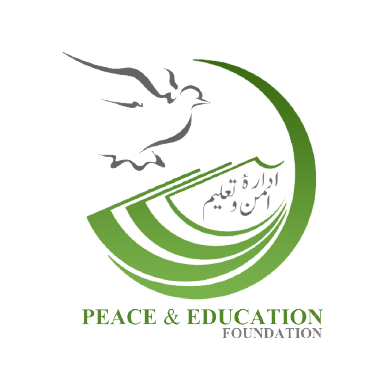It is not commonplace to find religious leaders of different faiths sitting side-by-side in one room, ready to discuss ideas of religious freedom and tolerance. With the launch of the PEF Interfaith Workshops, this rare occasion soon turned into a foreseeable reality.
To put it simply, these workshops provide diverse religious leaders with the opportunity to engage with one another through capacity building training, education enhancement and incorporating concrete skills to prevent violence and extremism in minority communities. These leaders often assume a position of paramount authority in Pakistani society—they lead worship services, serve as community members and provide religious guidance, making them highly influential members of their community.
Hafiz Muhammad Naeem Rashid is a Muslim Imam of a Salafi Mosque and a graduate from Madrasah Jamia Sattariah Islamia in Gulshanabad, Karachi. After graduating from the madrasah, Rashid held preconceived notions and implicit biases about a minority community that resided in his surrounding neighborhood. He would even avoid shaking hands with them or being in their presence.
He decided to participate in several interfaith training workshops conducted by Peace & Education Foundation (PEF). The workshops helped him tackle his biases and equipped him with concrete tools that he could deploy to champion the minority rights within his community.
Upon graduating from the workshop, Rashid was deeply motivated to create an initiative that would encourage non-Muslims to attend a dialogue at his mosque with other faith groups. In an effort to attract newcomers, he placed a signboard at the mosque entrance to welcome his fellow non-Muslim brothers. He also delivered special Friday sermons in which he condemned tragic anti-Christian hate crimes such as Badami Bagh, an arson attack on the Christian residential community in Lahore and the All Saints Church blast in Peshawar—both of which occurred in 2013.
His testimony is one out of the few thousands that are participating from all over Pakistan, including one interfaith graduate from Abbottabad who prefers to remain anonymous. He was reluctant to even sit next to or interact with Shia community members prior to attending the workshop.
“I don’t like to meet followers of other sects. Once, I was attending a social program when a Shia member from my community came and sat down next to me for lunch. I felt so much hatred for him in myself that I left the program. This was because I felt such disdain and only accepted people from my particular sect”
It wasn’t until a friend recommended PEF’s capacity building training workshop for faith leaders, that he was able to challenge his prejudiced views and the implications that it had on his community.
“After a long interaction with the people of other sects and religions, I re-examined my biases. It also made me realize that I have wasted enough time creating hatred, intolerance, and violence towards other sects. I was only interested in promoting my version of Islam and wanted to silence others”
Inspired by inter and intra faith projects of PEF, he is now an active leader in his community, educating others about tolerance, peace and reconciliation. He has initiated many community engagement workshops in his area, inviting all Islamic schools of thought, teachers, social workers and students to his gatherings. To understand the extent of his personal transformation, one community member reflected and said, “Before he didn’t even like to shake hands with people of other sects. Now, he has invited them in his home to attend small gatherings on peace-building”.
Many interfaith graduates believe that PEF’s initiative is the only ray of hope that can bring sustainable peace and promote love, brotherhood and justice within Pakistani society. From being reluctant to shake hands with other faith groups, to conducting inclusive workshops and preaching messages of interfaith harmony, our alumnae are now pioneers in breaking barriers to religious inclusivity. As a result, many have requested to arrange similar workshops for the benefit of other religious leaders and the larger community in the near future.

